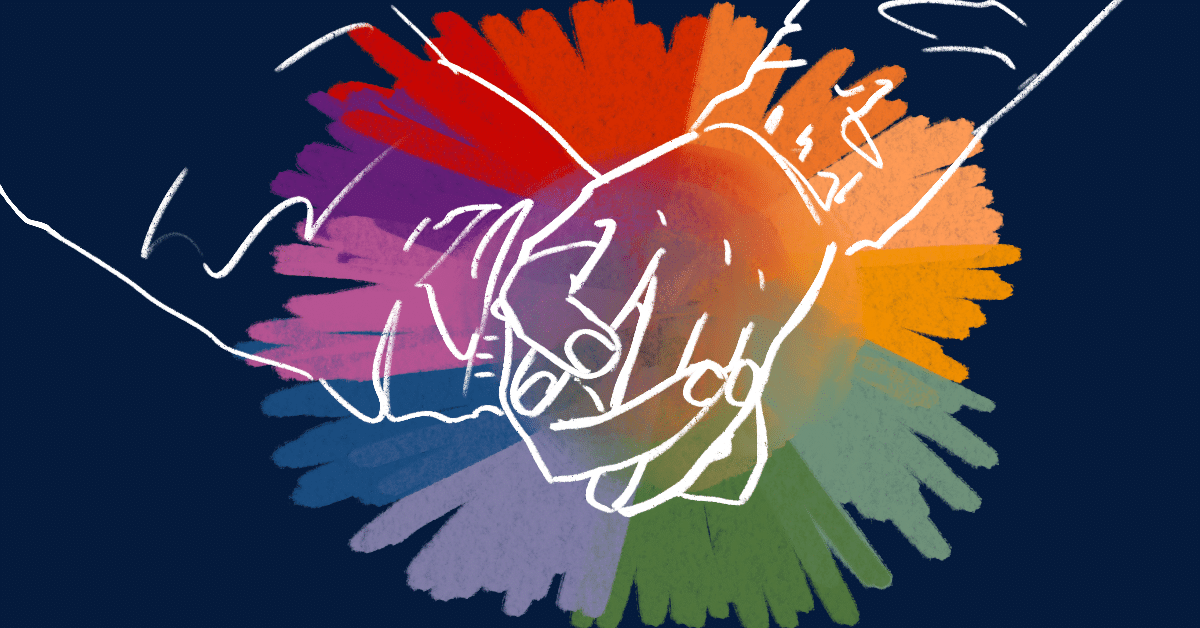Internalized homophobia: a common paradox
Voices and stories from queer people on campus shedding light on the frequently occurring phenomenon of internalized homophobia.
There are many homophobic beliefs and behaviours circulating in our society, ranging from physically violent hate crimes to all the miniscule comments made by friends that just barely cross the line. Constantly being surrounded by these ideas can influence the thoughts of individuals, sometimes pushing them to accept similar homophobic biases, either consciously or subconsciously. When a member of the LGBTQ2S+ community starts believing these biases and applying them to themselves, this is known as internalized homophobia. The phenomenon is more common than one might expect and is experienced by much of the queer community.
I interviewed three of my friends and coworkers (aliases have been provided to maintain privacy) who identify as members of the LGBTQ2S+ community. I asked them a few questions to guide their stories: What external factors have had the biggest influence on your thoughts about your sexuality and how has this impacted your thinking? Have you ever questioned the validity of your own sexuality? What were these thoughts and how do you manage them? How do homophobic biases shape the way you view and act towards the LGBTQ2S+ community? Here’s what they said:
Josh: Bisexual male
Josh explained that in elementary school, he went through a brief phase of questioning if he was actually gay. Josh didn’t really consider the possibility of bisexuality. When his initial belief that there was “no way I’m attracted to men” shifted, Josh felt pressured to pursue a direct leap from straight to gay before resonating with the possibility of being bisexual. During his high school years, most of Josh’s male friend groups were typical jocks. Their dynamic made him feel unwelcomed and kept him closeted to the group. Feeling the need to hide it, he was never particularly open about his sexuality. He used smaller actions to cover up any indicators that may be interpreted as gay. He used fewer hand gestures and deepened his voice when speaking to other men. Common stereotypes about the “white gay twink” directly influenced Josh’s sexual expression. Since it is publicly known that many people have a distaste for the flamboyancy associated with this stereotype, he steered away from this type of expression to avoid any possibility of directed hate. As for engagement in the queer community, Josh isn’t particularly active. He believes that it’s from a relatively even split between simply not enjoying big events and his internalized homophobia, backed by the fact that he feels he has no one supportive to attend with him.
Alex: Lesbian female
Alex grew up going to a Catholic school, limiting her exposure to the queer community and not knowing that being gay was even a possibility. It wasn’t until around age 12 when watching a lesbian kiss scene in Glee that she started wondering if she had these same feelings. It took a long time for Alex to accept that she was lesbian. Even to this day, as she moves in with her girlfriend, she still sometimes questions whether she is straight. Overcoming these thoughts is extremely difficult, so she uses the constant reminder that she’s happy with her girlfriend to keep her grounded. Alex explained she isn’t upfront about her sexuality and has to figure out a person’s vibe before bringing it up. In situations where she is surrounded by straight people making homophobic jokes and comments, for example, with her family, she sometimes participates to match their energy. Despite this, Alex feels strong and relaxed when surrounded by the queer community.
Max: Queer female
Max’s story is a little different. She grew up in a country where same-sex marriage is illegal. She understands that her family and culture have an enormous influence on her thoughts, making her feel that she can’t explore her sexuality freely or safely. As she’s attracted to both men and women, but has found herself with more men, Max is scared to claim a fight that “isn’t hers” and worries that it may take away importance from others in the community who have gone through more hardships. As opposed to people who are lesbian or gay, she feels she doesn’t completely fit under a specific label, which makes her question the validity of her sexuality. Max expressed that there’s no real way to fully overcome internalized homophobia. But, remembering that sexuality is fluid and understanding that labels aren’t needed helps her remain truthful to herself and her sexuality.
It’s important to remember that internalized homophobia is common and that nearly everyone in the LGBTQ2S+ community has struggled with it and pushed through it. Constantly checking in and having open communication with both yourself and your partners can help make the journey that much easier.
Associate Opinion Editor (Volume 50) —Tia is a third-year student completing a double major in Anthropology and Sociology. She uses The Medium as an outlet to do some creative writing that can't be expressed through the countless academic papers she writes during the semester. When she's not writing for the opinion section, you can find Tia getting gains in the gym, working at the campus pool, or volunteering with UTM ECSpeRT!


